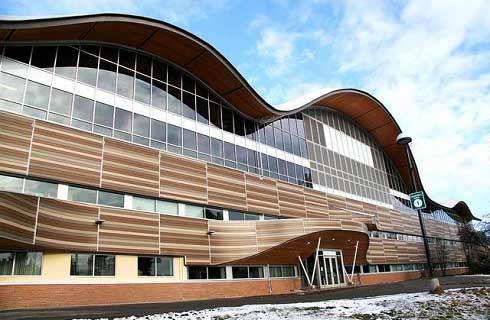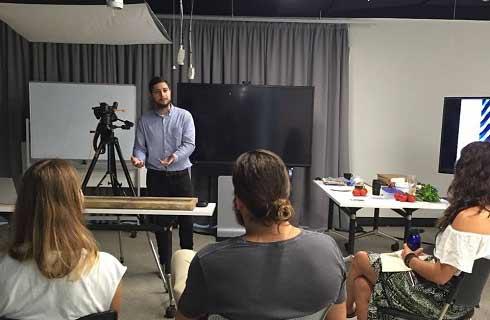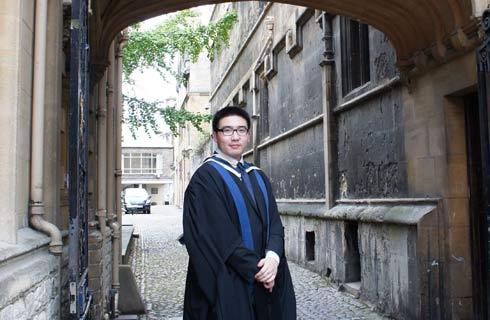- IDP China>
- 课程库>
- 工程与技术>
- 工程学及其相关技术>
- 其他工程及相关技术>
- Bachelor of Engineering (Instrumentation Control and Automation) Honours
工学学士(仪器控制与自动化)荣誉
Bachelor of Engineering (Instrumentation Control and Automation) Honours

学历文凭
Bachelor Degree with Honours

专业院系
School of Engineering

开学时间

课程时长

课程学费

国际学生入学条件
IDP—雅思考试联合主办方

雅思考试总分
- 雅思总分:
- 托福网考总分:
- 托福笔试总分:
- 其他语言考试:
CRICOS代码: 083338J
申请截止日期: 请与IDP联系 以获取详细信息。
课程简介
Instrumentation control and automation engineering is the integration of electrical electronic and computing engineering with control engineering This integrated discipline includes the development of intelligent systems to automate monitoring processing and production in different engineering industries The course is designed to provide graduates with a strong background to enter into a range of career pathways related to automation and control application in the mining and mineral processing oil and gas and agriculture industries that are strongly represented in the economy of Western AustraliaGraduates of the course will be conversant in electrical and electronic engineering have specialist skills in design development and management of advanced control and automation systems and have the ability to participate in and lead complex multidisciplinary projects The program focuses on the development of knowledge and skills relevant to professional engineering practice along with a sound theoretical base and includes strong elements of practical problem solving team work and project development As a result graduates will have strong analytical skills in addition to multiple technical and transferable competenciesThe course covers topics in process control algorithms computer interfacing and communications of industrial controllers as well as computer automation including the use of PLCs SCADA and PCbased systems to control systems and processes Topics such as advanced PLC control and SCADA systems and manufacturing execution systems are introduced in the advanced years of the program after students have gained proficiency in the theory of modern control and dynamic systemsCourse learning outcomesDemonstrate advanced knowledge of the underpinning natural and physical sciences and in depth understanding of specialist bodies of knowledge within the instrumentation control and automation engineering disciplinesThink critically and apply established engineering methods and research skills to complex engineering problem solvingApply systematic engineering synthesis and design processes to conduct and manage instrumentation control and automation engineering projects with some intellectual independence
相关申请
 预科
预科 奖学金
奖学金 实习机会
实习机会 在校学习
在校学习 跨境学习
跨境学习 校园授课-线上开始
校园授课-线上开始 在线/远程学习
在线/远程学习
开学时间&学费
学费信息仅供参考,请与IDP联系以获取详细信息
| 开学时间 | 时长 | 学费 | 地点 |
|---|
学校排名

世界排名501
数据源:
泰晤士高等教育世界大学排名
关于伊迪斯科文大学

埃迪斯科文大学(ECU)创建于1991年,是澳大利亚一所现代化的院校,因开设具有超前思维的先进课程而闻名,致力于帮助其学生为满足未来社会的需求做好充分准备。在''2024年优秀大学指南''(Good Universities Guide)中,该校的教学质量被评为五星级。该校已连续17年获得此成绩。埃迪斯科文大学位于西澳大利亚州首府珀斯,因规模庞大的古岩层景观、世界一流的酒庄和数千英里有着温暖清澈海水的沙滩而闻名。这是一座充满活力的城市,经济发展迅速,有大量旅游胜地和活动供学生去探索。埃迪斯科文大学开设有250多门课程。该校与专业合作伙伴共同开发了这些课程,确保课程内容始终与行业需求相关。许多课程包含职业模块、实习和小组项目,培养学生优秀的批判思考能力,使该校毕业生受到未来雇主的青睐。埃迪斯科文大学还因提供必要的支持服务而闻名,旨在确保其3.1万名学生的学术能力和个人能力得到全面发展。该校提供奖学金和助学金,还有一个积极活跃的学生会。学生会经常举办社交活动,并成立了很多俱乐部和社团,学生可以自由选择参加。该校营造了一个热情的学生社区,拥有由来自100多个国家的约6000名国际学生组成的充满活力的多样化学生群体,国际学生满意度指标得分很高。
本校相关课程

理学学士(物理学)荣誉
学历文凭
Bachelor Degree with Honours
开学日期
课程费用总额


文学士(艺术管理)
学历文凭
Bachelor Degree
开学日期
课程费用总额


教育领导力研究生证书
学历文凭
Graduate Certificate
开学日期
课程费用总额


公共卫生研究生文凭
学历文凭
Graduate Diploma
开学日期
课程费用总额


工程科学学士
学历文凭
Bachelor Degree
开学日期
课程费用总额


语言病理学学士
学历文凭
Bachelor Degree
开学日期
课程费用总额

其他相关课程

工程四级证书
 希拉巴克斯特培训中心(私立)
希拉巴克斯特培训中心(私立)学历文凭
Certificate IV
开学日期
课程费用总额


工程四级证书-制造
 霍姆斯格兰职业技术学院
霍姆斯格兰职业技术学院学历文凭
Certificate IV
开学日期
课程费用总额


设计文凭(UniLink)(8个月)
 斯威本科技大学
斯威本科技大学泰晤士高等教育世界大学排名:282
学历文凭
Unilink Diploma
开学日期
课程费用总额


专业工程学硕士(生物医学)
 悉尼大学
悉尼大学泰晤士高等教育世界大学排名:54
学历文凭
Masters Degree (Coursework)
开学日期
课程费用总额


工程科学学士
 伊迪斯科文大学
伊迪斯科文大学学历文凭
Bachelor Degree
开学日期
课程费用总额


细木工三级证书
 霍姆斯格兰职业技术学院
霍姆斯格兰职业技术学院学历文凭
Certificate III
开学日期
课程费用总额










